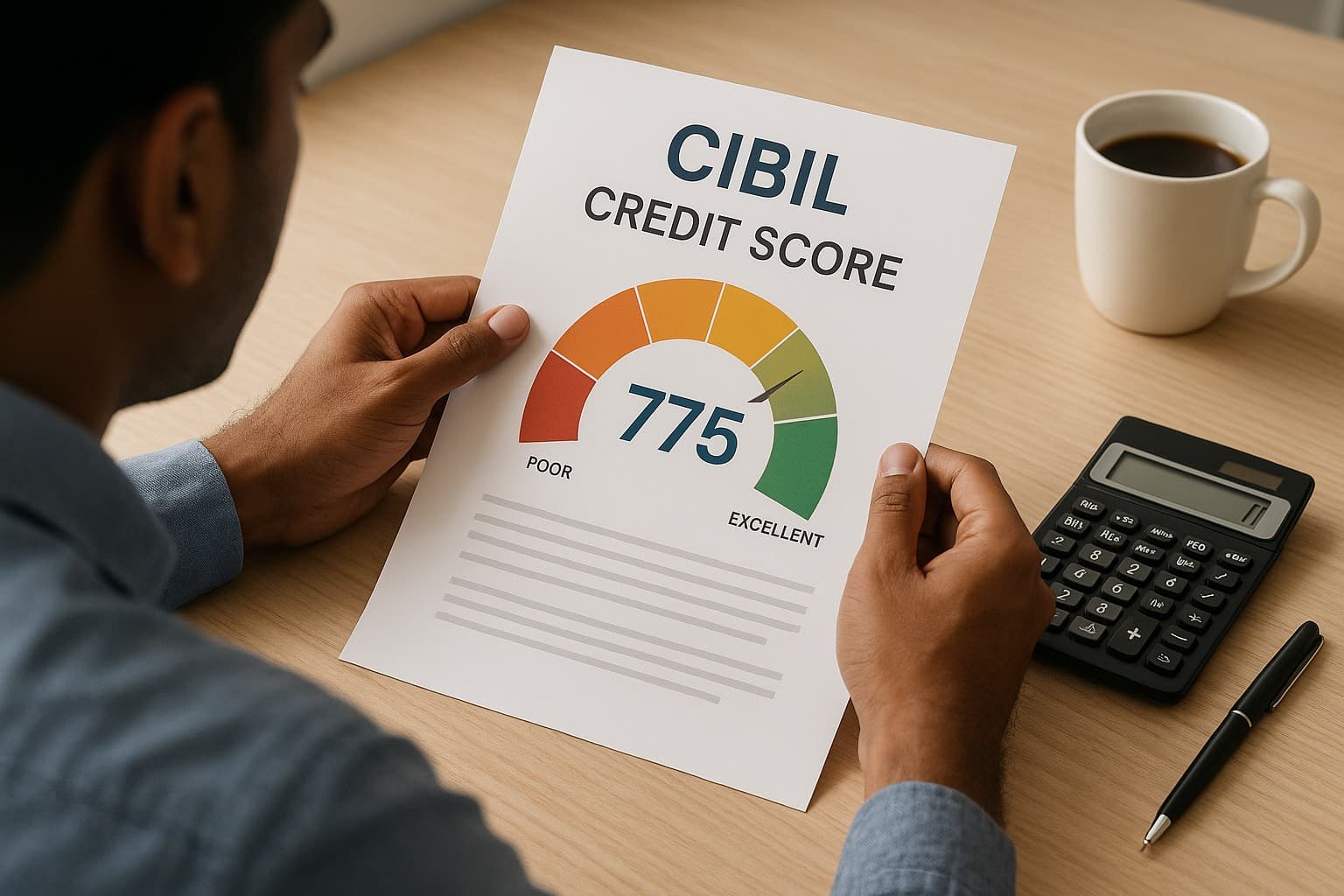How Your Credit Score Affects Your Home Loan in India
Summary
Your credit score significantly impacts home loan approval and interest rates in India. Improve your score for better terms and a smoother home buying process. Know your CIBIL score!

How Credit Score Affects Your Home Loan
Your Credit Score: More Than Just a Number
Buying your first home is a thrilling milestone. The thought of having your own space, painting walls the colors you love, and decorating every corner is enough to make anyone’s heart race. But along with the excitement comes a cloud of anxiety, and one number—your credit score India—can feel like the ultimate gatekeeper to your dream.
Your CIBIL score isn’t just a random number—it’s a reflection of how responsibly you’ve managed credit in the past. Banks and housing finance companies use it to determine your home loan eligibility, decide loan approval, and even calculate your mortgage rate India. A strong score can open doors; a weak score can close them.
Think of your credit score as your financial reputation. Just like you wouldn’t hire someone with a sketchy job history, banks are cautious about lending to someone with a shaky credit record.
Understanding Credit Scores in India
A CIBIL score ranges from 300 to 900, summarizing your credit behavior. Here’s a simple breakdown:
750–900: Excellent 700–749: Good 650–699: Fair Below 650: Poor
For aspiring homeowners, this number is more than a metric—it can be a stressor or a tool. High scores mean smoother approvals and better rates, while low scores can delay your plans or increase costs.
The Real Impact on Home Loan Approval
Imagine Rohit, a software engineer, eagerly hunting for his first flat. He finds a perfect 2BHK in Pune, applies for a loan, and—shock—gets rejected. Why? His CIBIL score dipped below 650 due to some missed EMIs and a maxed-out credit card. The dream apartment now feels frustratingly out of reach.
Here’s what a credit score influences:

Loan Approval: Banks are more likely to approve borrowers with scores above 750. Low scores can lead to rejection or extra scrutiny. Interest Rates: Higher scores usually qualify for lower mortgage rates India, reducing your monthly EMIs. Loan Amount: Lenders may approve less than your requested amount if your score is low, limiting your property options.
Your credit score can literally determine whether your home buying experience is smooth or stressful.
Minimum Credit Score for a Home Loan
Most Indian banks and housing finance companies require a minimum CIBIL score of 650–700 for home loan approval. But here’s the catch: the higher your score, the better the terms. Scores above 750 often get preferential interest rates and flexible repayment options.
Take Priya, a first-time homebuyer in Bengaluru. She delayed her application by a few months to improve her score to 760. The result? She secured her dream apartment at a lower interest rate, saving lakhs over the tenure of the loan.
How to Improve Your Credit Score
If your score is below par, don’t panic. There’s always time to make improvements:
Pay Bills on Time: Missed credit card or EMI payments hurt your score the most. Reduce Credit Utilization: Try keeping your credit card balance under 30% of the limit. Avoid Multiple Loan Applications: Frequent inquiries signal risk to banks. Clear Pending Debts: Paying off old loans shows financial responsibility. Check for Errors: Mistakes on your report can drag your score down—get them corrected promptly.
Following these steps is essential if you want your CIBIL score to positively impact loan approval and interest rates.
Credit Score and Interest Rates
Your credit score directly affects the interest rate banks offer. Consider this:
Score above 750: 8–8.5% interest Score 700–749: 8.75–9.25% interest Score 650–699: 9.5–10% interest
Even a 0.5–1% difference might seem small, but over a 20-year loan, it can save lakhs of rupees. For first-time buyers, understanding this relationship is crucial.
Challenges of a Low Credit Score
A low score can make the home buying journey bumpy:
Delayed Processing: Lenders may require additional verification, extending timelines. Higher EMIs: A higher interest rate increases monthly payments, straining budgets. Limited Options: Low scores might restrict you to certain lenders or smaller loans. Stress: Waiting for approvals or worrying about rejections adds emotional strain.
Arjun’s experience is a lesson: his score dipped to 620 because of a missed EMI. He had to spend months improving it before banks approved his loan, delaying his dream home purchase.
Maintaining Good Credit Health

A strong CIBIL score isn’t just about getting your loan approved. It’s about long-term financial discipline and peace of mind. Good credit health ensures:
Faster loan approval Lower mortgage rates India Larger loan eligibility Less paperwork and stress
Think of your credit score as a passport to homeownership. The higher it is, the smoother the journey.
Practical Tips for First-Time Buyers
Check Early: Know your CIBIL score before house hunting to identify issues early. Budget Wisely: Include registration, stamp duty, maintenance, and furnishing costs. Stay Disciplined: Avoid large purchases or new loans before applying. Consult Experts: Seek advice on interest rates, loan types, and repayment plans.
These tips help ensure your first home loan experience is calm, confident, and rewarding.
Conclusion
Your credit score India plays a pivotal role in the home buying process. From determining home loan eligibility and loan approval to influencing mortgage rates India, it affects almost every aspect of your purchase.
For first-time buyers, the key takeaway is: check your score early, improve it if needed, and maintain good credit habits. Doing so not only increases your chances of approval but also ensures you get the best financial terms. With a strong credit score, the dream of owning a home in 2025 becomes less intimidating and far more achievable.
Summary (100 words)
Your CIBIL score is a critical factor in home loan approval and interest rates in India. A high score increases loan eligibility, lowers EMIs, and speeds up processing, while a low score can lead to delays, higher rates, or rejections. First-time buyers should understand how credit score impacts home loans, check their scores early, and follow steps to improve them, such as timely payments, reducing debts, and avoiding multiple inquiries. Maintaining good credit health ensures a smoother home buying process, financial savings, and peace of mind. With the right approach, first-time property buyers can confidently navigate the 2025 real estate market.
